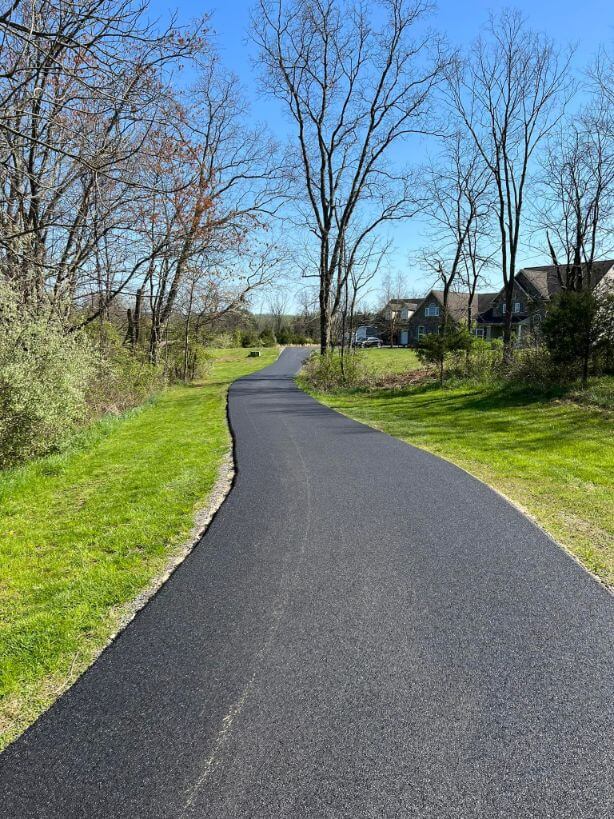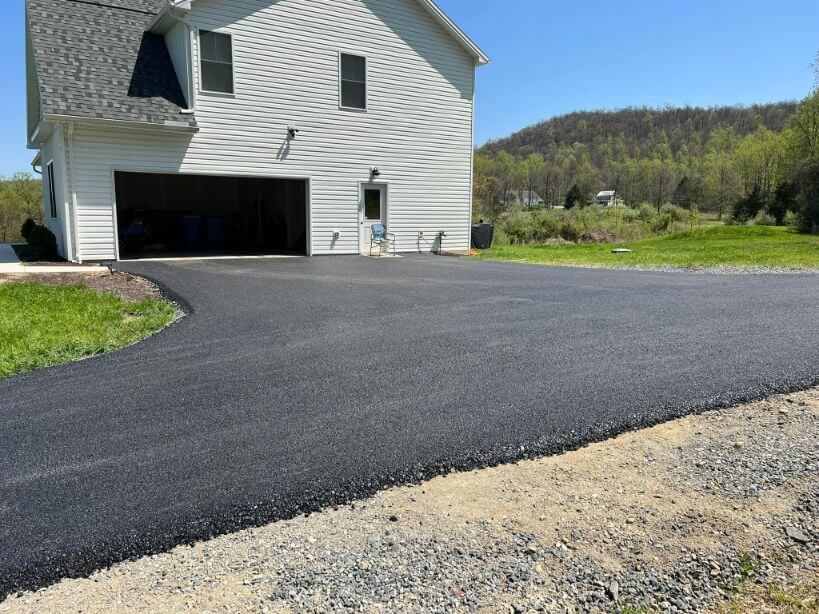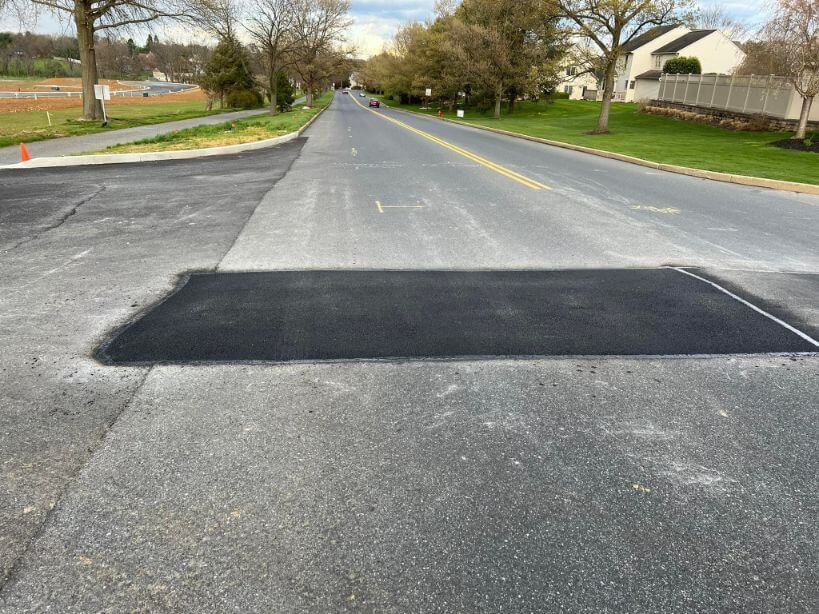Driveway Specifications for Asphalt Thickness
The thickness of the asphalt will depend on the amount of traffic that the driveway or parking lot will be getting. More traffic will require a thicker layer of asphalt. It is important to make sure that the asphalt is thick enough so that it can withstand the weight of vehicles and also so that it will not crack under extreme temperatures.
If the asphalt is too thin, it can crack and crumble under the weight of vehicles or in extreme heat. If the asphalt is too thick, it can be difficult to drive on and can also crack under extreme cold. The thickness of the asphalt should be just right so that it is durable and can withstand whatever weather conditions it may encounter.
The thickness and structure of an asphalt paving project are determined by how the pavement will be used once it is completed. But there’s more to it than that, because asphalt pavement is a whole system with a few significant times involving subgrade materials and drainage.
How thick is asphalt driveway?
There are a few things to keep in mind when it comes to asphalt driveway thickness. First, the thickness of your asphalt driveway should be at least two inches thick. Anything less than two inches is simply not thick enough to withstand the weight of a car, and it will crack and crumble over time. Second, you need to make sure that the asphalt is evenly spread across the entire driveway. Uneven asphalt can lead to cracks and potholes.
Asphalt driveway thickness is important to consider because it affects the lifespan of your asphalt driveway. The thicker the asphalt, the longer it will last. Asphalt driveways typically have a lifespan of 15-20 years, but if you opt for a thicker asphalt driveway, you can extend that lifespan by up to five years.
Driveway Specifications for Residential Driveways
In general, residential driveways should have a base layer of gravel that’s at least four inches deep. This is followed by a binder course made up of one to two inches of asphalt. Finally, the top layer, or wear course, is only half an inch to three-quarters of an inch thick. All three layers should be compacted with a heavy roller during construction for the best results.
Commercial Driveways and Parking Lots
The thickness of asphalt for a commercial driveway or parking lot must be at least four inches. However, it is recommended that the thickness be greater than six inches in order to provide adequate support and durability. The thickness of the asphalt will also depend on the amount of traffic that the area will experience. For example, areas with heavy truck traffic will require a thicker layer of asphalt than areas with light vehicle traffic.
Heavy Duty Commercial Driveways and lots
There are three main types of asphalt for driveways: light, medium, and heavy duty. Light duty is typically used on residential driveways and can range from as little as two inches to four inches thick. Medium duty is often used on commercial parking lots and driveways and ranges from four to six inches thick. Heavy duty asphalt is typically found on highways and other high traffic areas and can be up to eight inches thick.
Do you need help figuring out which thickness is right for your driveway?
Willies Paving is your best bet! Give us a call and we would be happy to help! We have years of experience in the asphalt industry and know all there is to know about driveway and parking lot specifications. We would be happy to answer any questions and offer you the best decision for your needs. Contact us today!



